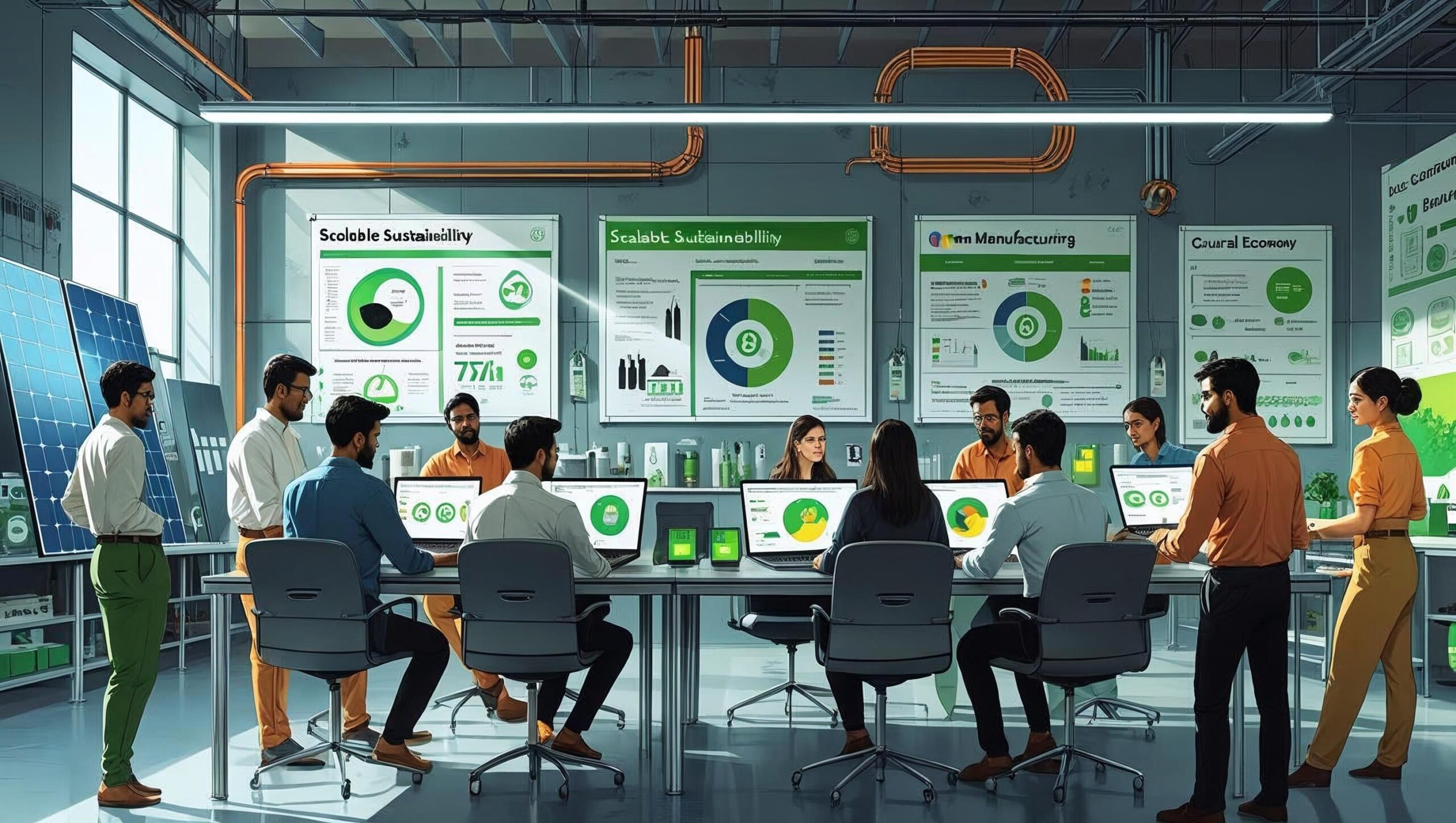Step into Delhi’s bustling markets or even the quiet, serene villages of Tamil Nadu, and you’ll spot it: a vibrant green wave sweeping across India’s startup landscape. It’s pretty exciting, actually. In 2024, more than 3,000 green startups were busy turning genuine sustainability into serious, profitable business. Just look at the numbers: the clean energy market hit a whopping $10 billion, and green investments themselves surged a full 30% to $1.8 billion!
From silent electric cabs gliding through city streets to perfectly compostable plates, companies like BluSmart and Ecoware are truly leading this charge. What’s driving them? Well, it’s a powerful combination: India’s ambitious 2070 net-zero goal and a growing army of young, incredibly eco-savvy consumers. Sure, high costs and shaky rural infrastructure can make the journey a bit bumpy, but the momentum is undeniable.
Why Green Startups are Absolutely Thriving
This Indian green boom isn’t just happening by chance; it’s the result of several powerful forces aligning. With over 700 million internet users and #GoGreen constantly trending on platforms like X, Indian consumers are really demanding eco-friendly products now. And governments are stepping up too! Schemes like the National Solar Mission and the allocation of ₹10,000 crore in green bonds are definitely fueling this growth.
The Economic Survey 2024-25 actually highlights something fantastic: our solar capacity hit 85 GW, which is a solid 15% jump from 2023. “Honestly, solar power is now cheaper than coal,” states Anil Yadav, an engineer at ReNew Power in Gujarat, making a compelling case. Add in policies that permit 100% foreign investment in renewables, and you’ve got global players, like Singapore’s Temasek, eagerly pouring in cash. It’s a perfect storm for sustainable innovation.
The Stars of India’s Green Revolution
Let’s meet some of the heroes of this green revolution:
- BluSmart: This EV cab startup, a familiar sight in Delhi and Bengaluru, completed an incredible 10 million rides in 2024 alone. That effectively slashed CO2 emissions by a massive 25,000 tonnes. “I earn more, and I’ve got zero fuel costs – it’s a no-brainer!” enthused Sanjay Patel, a BluSmart driver in Delhi.
- Ecoware: Their brilliant biodegradable plates, crafted from sugarcane waste, are now stocked in 5,000 stores, literally replacing millions of plastic items. “My café switched to Ecoware, and it’s been a real hit with my customers,” shared Sunita Devi, a savvy shopowner in Hyderabad.
- TrashCon: This innovative startup is turning 10 tonnes of daily garbage into useful biogas and compost. “Their fuel actually powers my village kitchen,” remarked Rajesh Kumar, a farmer in Telangana, highlighting the direct impact.
What’s Really Driving This Boom?
So, what’s really propelling this surge? For starters, there’s a truly massive market of 1.4 billion people, with a rapidly growing middle class that genuinely appreciates sustainable products. And government support, like tax breaks offered via Startup India, definitely helps sweeten the deal.
These green startups created an impressive 150,000 jobs in 2024, ranging from highly skilled solar technicians to essential waste sorters. Social media is buzzing with excitement, too, with accounts like @GreenIndiaNow on X frequently calling these ventures “planet savers.” Globally, India’s low-cost, sustainable model is becoming a magnet, with investors from the UAE and EU actively eyeing its staggering $2 trillion clean energy potential by 2030. It’s truly a win-win for everyone involved.
The Realities: What Challenges Do Green Startups Face?
Now, going green isn’t always cheap. High-tech items like solar panels and EV batteries can cost lakhs, making them frankly out of reach for many. And rural areas, where reliable power can be a huge challenge (think 40% less reliable access), often struggle to fully plug into these new technologies. “I’d love to have solar, but it’s just too pricey for us right now,” sighed Priya Menon, a farmer’s wife in Bihar, voicing a common concern.
Then there’s the competition from entrenched industries like coal, and sometimes, frustrating regulatory delays can really slow things down. Plus, greenwashing – where companies make misleading eco-claims – is a real concern. About 20% of startups faced scrutiny over their advertising in 2024, according to ASCI, which, understandably, hurts consumer trust.
Impacting Everyday India
For everyday Indians, these green startups are proving to be nothing short of a game-changer. In Mumbai, café owner Sunita Rao is saving 10% on packaging costs simply by using recycled materials from ventures like Banyan Nation. Farmers in Punjab are seeing their yields improve significantly thanks to clever agritech solutions offered by these sustainable ventures. Globally, India’s determined eco-push is drawing serious praise, with its innovative, low-cost model inspiring countries like Kenya.
Looking Ahead: Keeping the Green Fire Burning
The Economic Survey strongly urges more research and development (R&D) and additional tax incentives to keep this green fire burning bright. And with plans to train 10 million young people in clean tech by 2027, India is truly gearing up for a sustainable future. “These startups aren’t just building businesses; they’re building a future we can actually breathe in,” remarked Anil Sharma, a perceptive Bengaluru investor.
Sure, challenges like securing consistent funding and shoring up rural grids will persist. But India’s green startups are definitively proving that sustainability isn’t just a nice-to-have for the planet—it’s excellent business. From the hum of silent EVs to the simplicity of compostable plates, they’re meticulously paving the way, one incredibly smart, eco-step at a time.




